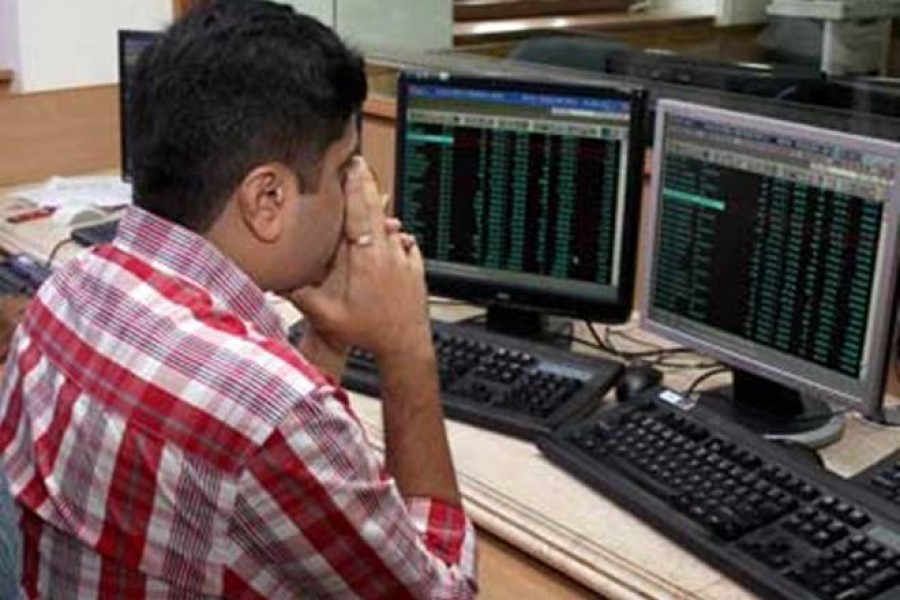As always, market pundits are clueless about the latest plunge in the Dhaka Stock Exchange (DSE) indices.
The market has been in a free fall for the past few weeks notwithstanding behind-the-scene efforts by some market players to reverse the process.
On Tuesday last, the market turnover at the DSE plummeted to 13-month low with the DSE main index plunging to 5,248.91 points.
One can cite a host of reasons including paucity of quality stocks, lack of investors' confidence, shortage of liquidity for the erosion in stock prices.
But with these factors in place, the main index had soared to more than 5,800 points. The rise did happen even without any notable investment by the banking institutions.
In fact, rise and fall of stock prices in Bangladesh market, in most cases, have been without any plausible reason.
For instance, when a consortium of two major Chinese stock exchanges made an equity investment in the DSE, there was a sort of euphoria among a section of investors. Though the Chinese investment provided a boost to the overall market climate, it could not address the underlying issues that have been responsible for the current moribund state of the market. The plain truth is that Chinese investment came as a strategic move, made under a long-term perspective, not to buoy up the market.
Why did the market experience a free fall in recent weeks?
Under the prevailing circumstances, market should not have gone down so deep. It could be that some people guided by certain ill motives are pulling the market down, deliberately.
It is more likely that some manipulators are now at work. The so-called firewall built by the securities regulator is hardly effective against the mischief-mongers prowling the market.
But the manipulators are unlikely to be successful in their ploy, for market lacks enough liquidity.
It is a shame that the daily turnover of the prime bourse of the world's 42nd largest economy, in nominal terms, is less than Tk 3.0 billion. The figure should be many times more.
How would then the market get the required volume of liquidity?
Small investors who burnt their fingers in the 2010 scam are unlikely to come to the market unless they witness some sustainable buoyancy. So, the institutional investors hold the key to any market turnaround.
The state investment institute---the Investment Corporation of Bangladesh (ICB)--- is dependent on the funds made available by the government. The amount it invests in the market is very insignificant compared to the market requirement.
Banks are, thus, major players in terms of availability of liquidity. But, at the moment, they themselves are handicapped by liquidity shortage.
Besides, they appear to be quite cautious in the matters of making investment in the stock market. Though, for some, investment in stocks proved to be highly rewarding, a few banks had faced problem to get back their invested funds following the 2010 market collapse.
So, the country's stock market is likely to hold on to the current 'on- again, off-again' state for some more time. All the good news about the economy is unlikely to make any notable difference in its operations.
zahidmar10@gmail.com


